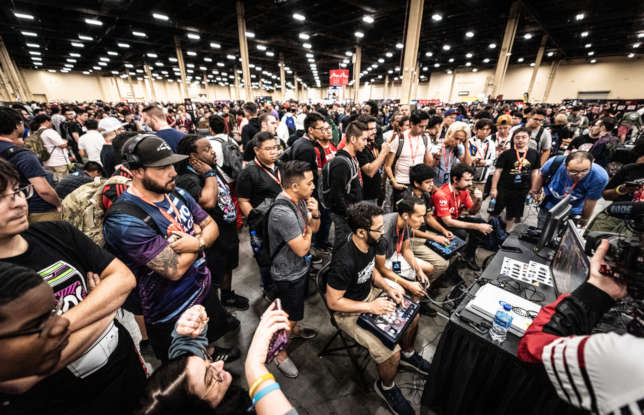Free Esports Curriculum Contains Full Lesson Plans
- By Dian Schaffhauser
- 09/13/19

An esports league has launched a free high school curriculum to help teachers use gaming to boost student learning. "Gaming Concepts" from the High School Esports League (HSEL), was written as turnkey curriculum "that almost anyone with even rudimentary computer skills could teach," according to authors Kristy Custer and Michael Russell. The project was supported by Microsoft.
The content covers learning standards in areas such as careers in gaming, maintaining healthy practices, self-management and interpersonal communications, as well as an overview of esports gaming and complete lesson plans.
The authors have both been involved in HSEL's after-school esports program and worked with Wichita State University to create the semester-long elective course. According to HSEL, in a pilot program that used the curriculum, students who took the course experienced an average improvement in their grade point averages of 1.4 points and attendance that reached 95 percent.
"Students with chronic absenteeism who do not feel a connection to the school especially benefit from esports," said Custer in a statement. "Eighty-two percent of students on our team had never participated in an extra-curricular activity prior to offering esports."
"We've known for a long time that bringing students' passion for games into a supportive, educational environment can be transformative for kids who otherwise might be disengaged or left behind," added Mason Mullenioux, co-founder and CEO of HSEL
"Esports has tremendous potential, both to inspire students to learn 21st-century skills and also to include many students who have previously been marginalized with respect to competitive activities," noted Donald Brinkman, a Microsoft senior program manager in charge of Bing esports and video game experiences. The guide, he said, was "designed to teach pro-social and pro-academic behaviors that are positively correlated to better academic performance-all through the lens of esports. We are thrilled to support it."
In April 2019 Microsoft introduced an hour-long online course for educators to help them learn more about esports and how it can be used to teach college and career readiness.
The new curriculum, "Gaming Concepts," is openly available as a downloadable PDF file on the HSEL website.
About the Author
Dian Schaffhauser is a former senior contributing editor for 1105 Media's education publications THE Journal, Campus Technology and Spaces4Learning.